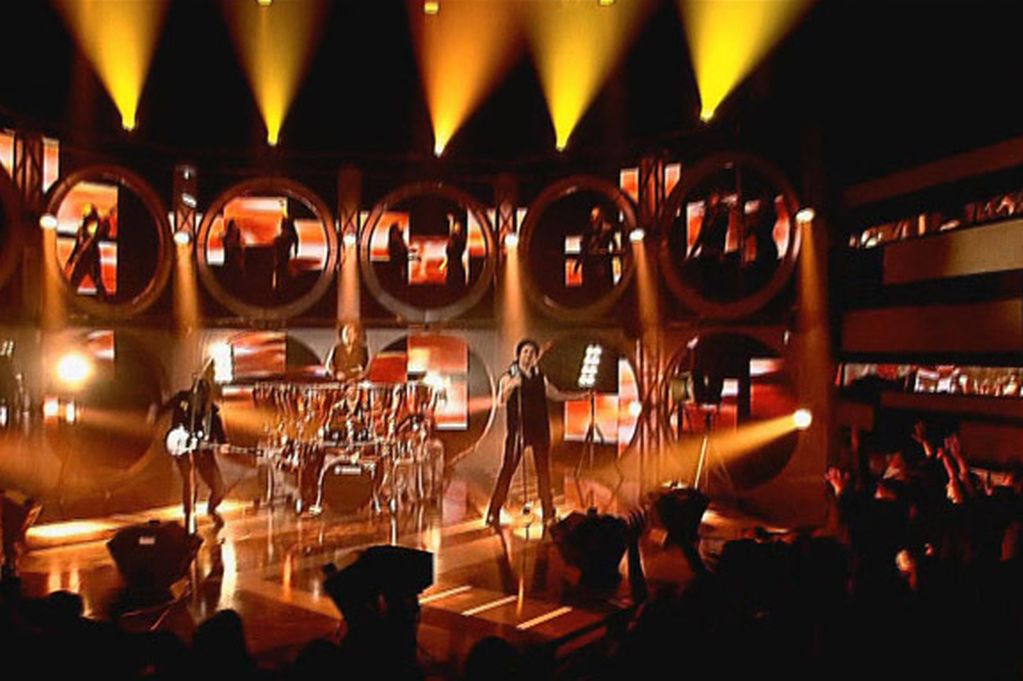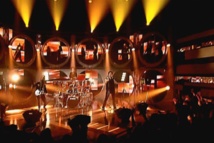In a sign that politics remain closely intertwined with voting, audience members at Tuesday's semi-final booed when it was announced that Russia had made it to the final, and observers believe Ukraine's entry could benefit from sympathy votes in Saturday's final.
The unpredictable outcome plays well with public broadcaster DR's plans for a more dramatic, reality TV tinged framing of what is sometimes billed as the biggest non-sporting television event in the world.
"We're upping the pace a little to increase the suspense," executive producer Pernille Gaardbo told AFP.
"When the artists leave the stage we will show their immediate reaction... We want to make it as dramatic as possible," she added.
After the cost of hosting the event began to soar -- some estimates put the price tag for regenerating Azerbaijan's host city Baku at one billion dollars (720 million euros) in 2012 -- Sweden last year scaled it down.
DR said it has tried to keep it on the same level, pledging to spend around 190 million kroner (25.5 million euros, $35.4 million) on the event, which last year drew an audience of 170 million viewers.
Broadcasters in many European countries continue to struggle with budget cuts and Bulgaria, Cyprus and Serbia have all said they will not be competing this year.
The glitzy competition viewers love to hate has gained in popularity since the 1990s, when the European Broadcasting Union scrapped its strict rules on singing in the national language and performing with an orchestra led by a conductor.
But although its mainstream appeal has grown in recent years, the event's unique blend of humour, fierce nationalism and songs that rhyme "angel in disguise" with "luscious thighs" continue to puzzle many non-Europeans.
- 'I just don't get it' -
"Sorry Euros, but I just don't get it," an American expatriate in Copenhagen, Justin Cremer, wrote on Twitter during Tuesday's semi-final.
"Tuned in out of curiosity and just couldn't believe how terrible it is. I lasted just over two songs," he added.
In the wake of their independence, Eurovision has become particularly popular in the countries of the former Soviet bloc, who typically take it more seriously than countries like Britain, where many associate it with the sardonic commentary of broadcaster Terry Wogan.
Denmark last hosted Eurovision in 2001 after the Olsen Brothers won with "Fly on the Wings of Love".
Many Danes still remember BBC commentator Wogan's scathing reference to the host couple as "Dr Death and the tooth fairy", after they were ridiculed for introducing every song in rhyming couplets.
This year the organisers have enlisted a trio of hosts including Pilou Asbaek, known to international viewers for his role in Danish political drama "Borgen", and reactions on social media were overwhelmingly positive after Tuesday's semi-final.
Copenhagen's main shopping street has been converted to a buzzing "fan mile", and so far things have run smoothly at the Eurovision venue -- a previously untested and rather unglamourous former shipyard in an industrial area.
"We thought it was a super exciting place, a very inspiring space. It's very masculine and raw," Gaardbo said.
"The audience sits relatively close to the stage. Even though there are 11,000 people it has a relatively intimate feel," she added.
-------------------------------------------------------------------
The unpredictable outcome plays well with public broadcaster DR's plans for a more dramatic, reality TV tinged framing of what is sometimes billed as the biggest non-sporting television event in the world.
"We're upping the pace a little to increase the suspense," executive producer Pernille Gaardbo told AFP.
"When the artists leave the stage we will show their immediate reaction... We want to make it as dramatic as possible," she added.
After the cost of hosting the event began to soar -- some estimates put the price tag for regenerating Azerbaijan's host city Baku at one billion dollars (720 million euros) in 2012 -- Sweden last year scaled it down.
DR said it has tried to keep it on the same level, pledging to spend around 190 million kroner (25.5 million euros, $35.4 million) on the event, which last year drew an audience of 170 million viewers.
Broadcasters in many European countries continue to struggle with budget cuts and Bulgaria, Cyprus and Serbia have all said they will not be competing this year.
The glitzy competition viewers love to hate has gained in popularity since the 1990s, when the European Broadcasting Union scrapped its strict rules on singing in the national language and performing with an orchestra led by a conductor.
But although its mainstream appeal has grown in recent years, the event's unique blend of humour, fierce nationalism and songs that rhyme "angel in disguise" with "luscious thighs" continue to puzzle many non-Europeans.
- 'I just don't get it' -
"Sorry Euros, but I just don't get it," an American expatriate in Copenhagen, Justin Cremer, wrote on Twitter during Tuesday's semi-final.
"Tuned in out of curiosity and just couldn't believe how terrible it is. I lasted just over two songs," he added.
In the wake of their independence, Eurovision has become particularly popular in the countries of the former Soviet bloc, who typically take it more seriously than countries like Britain, where many associate it with the sardonic commentary of broadcaster Terry Wogan.
Denmark last hosted Eurovision in 2001 after the Olsen Brothers won with "Fly on the Wings of Love".
Many Danes still remember BBC commentator Wogan's scathing reference to the host couple as "Dr Death and the tooth fairy", after they were ridiculed for introducing every song in rhyming couplets.
This year the organisers have enlisted a trio of hosts including Pilou Asbaek, known to international viewers for his role in Danish political drama "Borgen", and reactions on social media were overwhelmingly positive after Tuesday's semi-final.
Copenhagen's main shopping street has been converted to a buzzing "fan mile", and so far things have run smoothly at the Eurovision venue -- a previously untested and rather unglamourous former shipyard in an industrial area.
"We thought it was a super exciting place, a very inspiring space. It's very masculine and raw," Gaardbo said.
"The audience sits relatively close to the stage. Even though there are 11,000 people it has a relatively intimate feel," she added.
-------------------------------------------------------------------









 Home
Home Politics
Politics











